


02.

03.
Shrinking Consumer Base
04.
Experience Matching For Effective Branding
07.




02.

03.
Shrinking Consumer Base
04.
Experience Matching For Effective Branding
07.
Although wine has a rich history in the alcoholic beverage industry, it has recently faced significant shifts due to a variety of market forces. A myriad of incumbent beverages are siphoning off market share from wine brands in an already shrinking consumer market. The emergence of younger generations, such as Gen Z, are hastening the trend towards craft cocktails, casual RTDs, and lower ABV and non-alcoholic alternatives. As a response, wine brands are appealing to consumers through distinct and novel drinking experiences, which are portrayed through branding and packaging. More and more wine brands are expanding the marketable nature of wine by appealing to consumers beyond the traditional cork, pour and sip sensory experience. Newer brands are using more convenient and accessible packaging formats like boxes and cans, highlighting lighter ABV and healthier SKUs, and connecting to specific third spaces like restaurants, concert venues, planes/trains, etc. to differentiate themselves in the market and build up a sustainable competitive advantage.
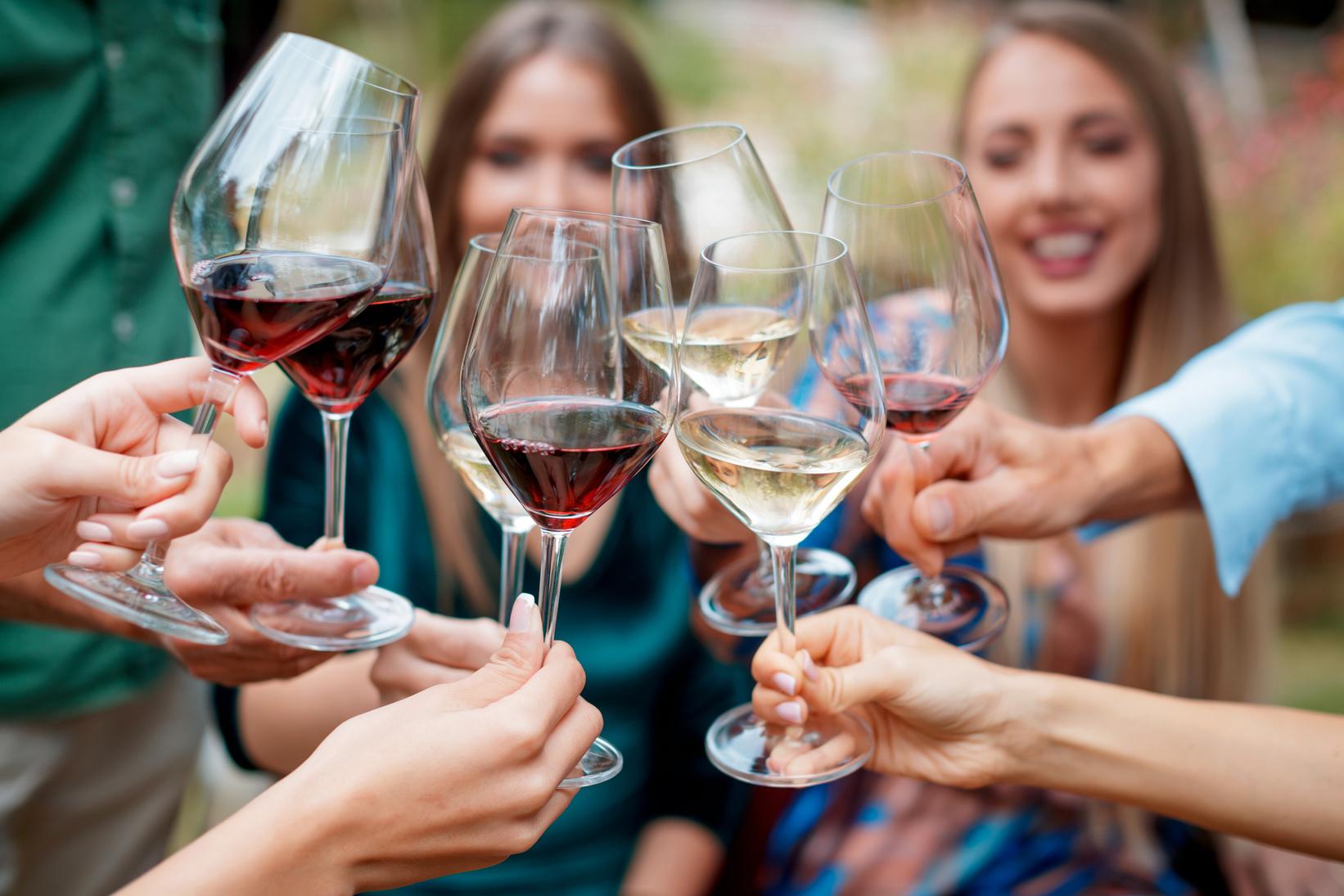

The wine industry is encountering a shifting paradigm due to a decreasing consumer base and a growing array of disruptive beverage alternatives. Wine brands need to connect with customers by offering unique value propositions that also resonate with the broader trends affecting the consumer beverage market as a whole.
01
The consumer base for alcoholic beverages is declining due to the rising health consciousness among younger generations who are opting for nonalcoholic alternatives. Moreover, the emergence of alternative beverages and craft cocktails is saturating an already shrinking market.
The conventional wine tasting process (such as uncorking, pouring, tasting) is dominated by established players, compelling other brands to align their wine branding and packaging with new and unique experiences, occasions, and settings It is crucial for wine brands to maintain their brand identity by not associating their wine with too many different experiences.
03
Third spaces, commonly known as places that bridge the gap between work and home (both physically and emotionally), present an opportunity for wine branding to cater to wine consumers seeking distinctive experiences.
In the U.S., wine has been experiencing a decline in market share over recent years, a trend that is anticipated to persist due to other market forces challenging the traditional drink's popularity.
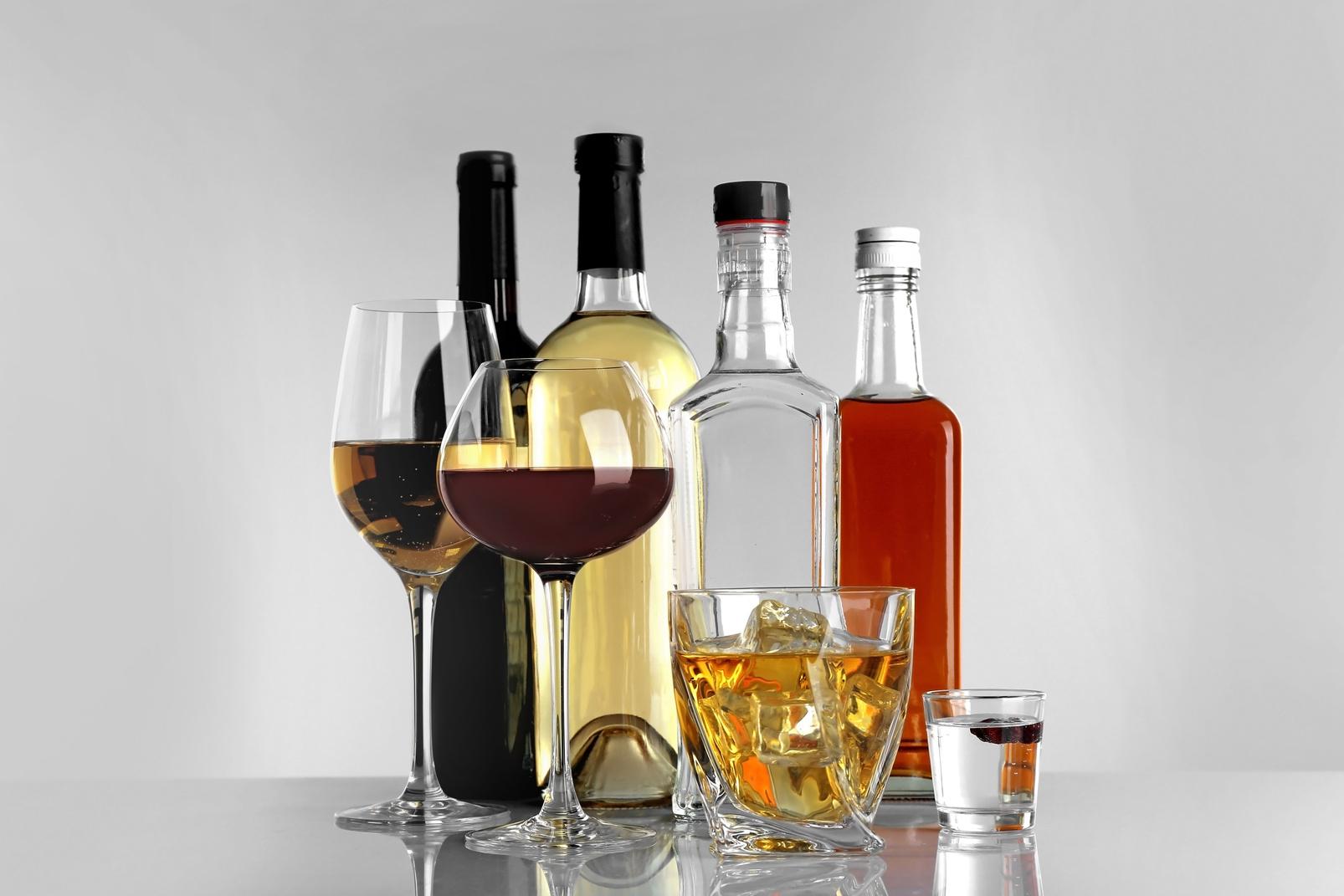
By 2024, half of the Gen Z population will reach the legal drinking age, leading to a shift towards younger preferences influencing the market. This change is fueling an increase in abstinence, the rise of alternative beverages, and a preference for lower alcohol by volume (ABV) drinks, reflecting the health-conscious mindset of younger adults.
The alcohol industry has witnessed a surge of new players introducing hyper-casual RTDs, craft cocktails, seltzers, and alternative beverages like THC-infused drinks. Alongside Japanese whiskey, growing awareness of other Asian spirits such as Japanese shochu, Korean soju, and Chinese baijiu is projected to continue expanding the suite of alcoholic options for consumers in the upcoming years.
28%
Of consumers identified as "abstainers” in 2023, showing a 4% increase from 2017
-3%
Growth rate of wine sales in the US in 2023, marking the third year of negative volume growth
60%
Of consumers believe the fastest way to improve health is to drink less

While not every wine suits every occasion, there is undoubtedly a wine suitable for every event.
In a market saturated with established bottled wine labels, emerging brands with alternative packaging formats face the challenge of standing out by offering fresh and distinctive drinking experiences, outside of the traditional sensory experience. By tapping into innovative approaches that resonate with consumer values, these newcomers can carve out their own unique brand identity. By embracing creativity and a deep understanding of consumer preferences, new wine brands have the opportunity to create memorable moments for wine consumers
It is essential for new wine brands to carefully choose a single, well-defined experience to align their branding with, rather than attempting to cater to various experiences simultaneously By focusing on one distinct and compelling narrative, a wine brand can establish a clear identity and resonate more deeply with consumers. This approach allows for a cohesive and memorable branding strategy that can effectively differentiate the brand in a competitive market
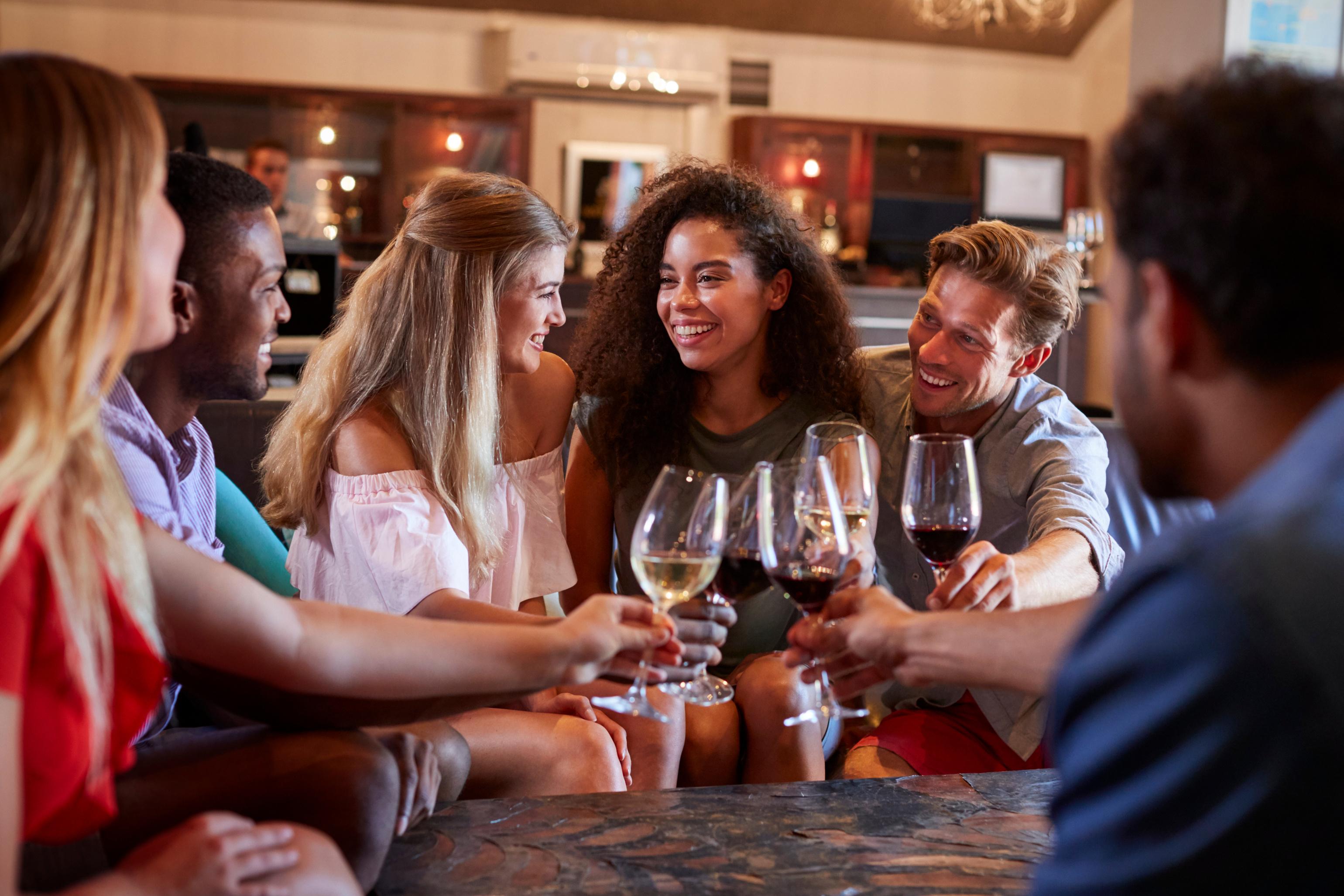
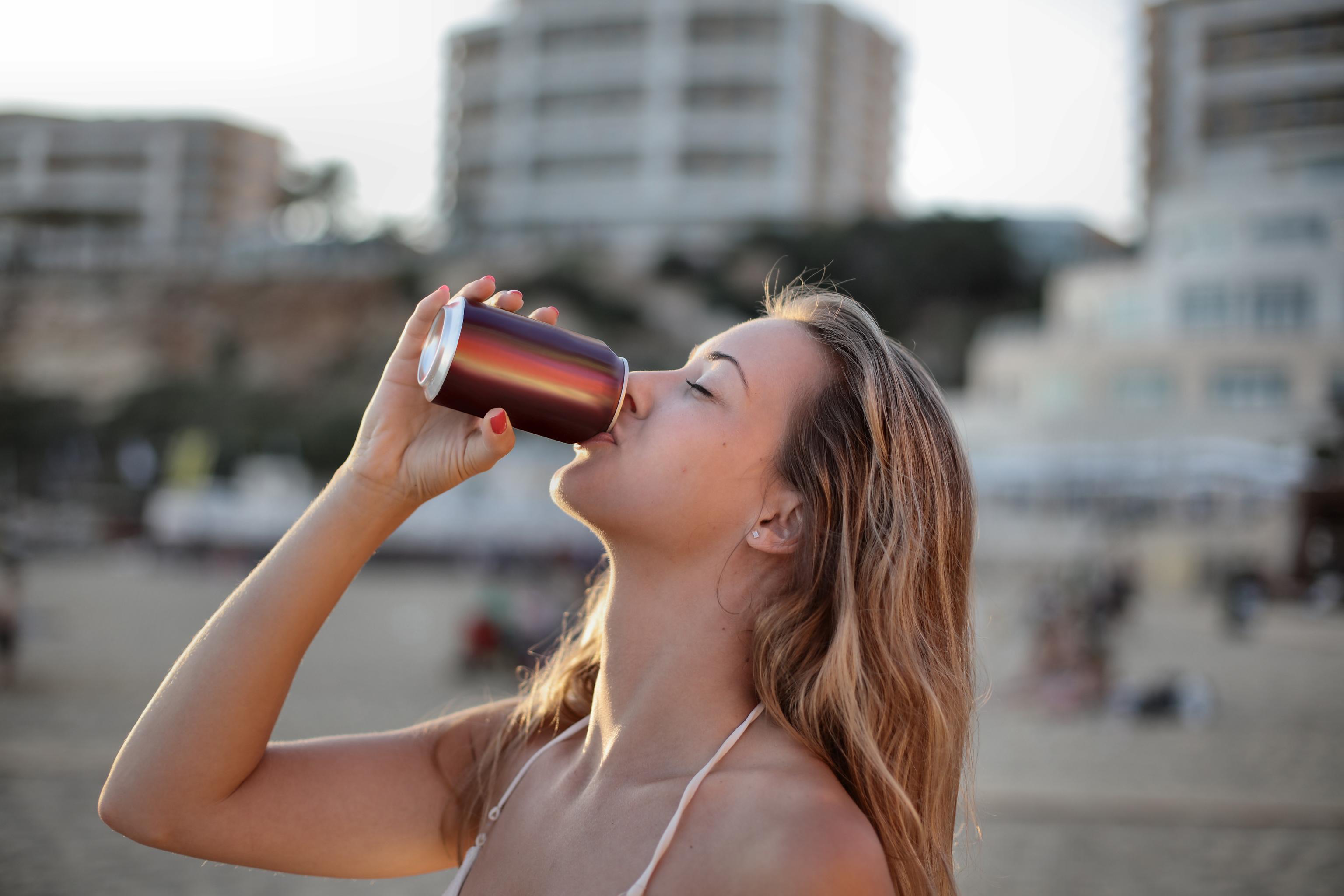
Third spaces provide a distinctive environment for wine branding to establish a more personalized and intimate connection with consumers. Wine brands can effectively associate their wine with experiences by utilizing third spaces like specific events, venues, or occasions It's crucial to reach consumers where they are and resonate with their lifestyles and values.

Canned wine, for example, is perceived as a "convenient" wine format that can be linked to third spaces for sustainability-focused consumers on the go. Through the incorporation of canned wine in third spaces, wine brands can appeal to the modern consumer seeking convenience without sacrificing quality The flexibility and eco-friendly nature of canned wine allows for easy transport and consumption at various events and gatherings, making it a popular option for those who prefer a more relaxed wine experience. This innovative wine branding strategy not only elevates the consumer journey but also leaves a lasting impression that transcends traditional wine consumption. By embracing the concept of third spaces, wine brands can remain relevant and connect with their target audience in a meaningful manner.

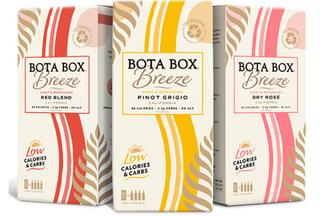
Frog’s
Boxed wine brand that has combined convenient packaging with a low-sugar, refreshing suite of flavors that targets health conscious consumers at outdoor venues such as the beach, cookouts and the pool
Strategic partnership with Shake Shack that increases brand awareness at a specific venue (fast casual restaurant)
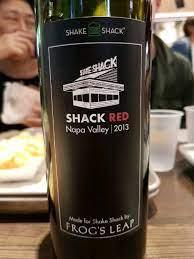
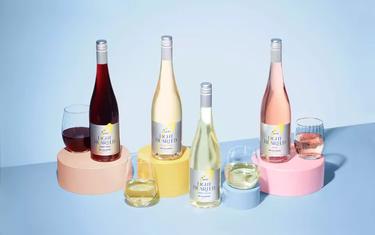
Hearted
Cupcake launched a new brand of wine designed for “life’s lighter moments” that pairs fruity flavors with casual settings
Gamer Packaging can play a crucial role in helping businesses stand out, drive traffic to their online platforms and social media channels, and ultimately increase in-store conversion rates through strategic primary and secondary packaging solutions.
Gamer can create visually appealing designs that capture attention both online and instore. Attract consumers browsing shelves or scrolling through social media feeds with unforgettable, eye-catching packaging that exemplifies your brand.
Maintaining consistent branding across all packaging materials helps reinforce brand recognition and recall Gamer can ensure that the brand's colors, logos, and messaging are integrated seamlessly into both primary and secondary packaging.
Consumers are increasingly conscious of environmental impact, so sustainable packaging solutions can resonate well with environmentally conscious audiences Gamer can assist businesses in adopting eco-friendly materials and designs that appeal to sustainability-minded consumers.
Introducing unique packaging features, such as innovative opening mechanisms or sustainable materials, can generate buzz and encourage social sharing. Gamer can help identify and implement distinctive elements that differentiate their products from competitors.

"Global Consumer Trends" Mintel, 2024 Accessed 16 Feb 2024
Hamdi, Amr. "Consumers & the Economic Outlook - US - 2024." Mintel, January 2024 Accessed 16 Feb 2024
Luttenberger, David. "2023 Packaging Trends." Mintel Group Ltd, 31 Jan. 2023. Accessed 16 Feb. 2024.
McMillan, Rob "State of the US Wine Industry 2024" Silicon Valley Bank Wine Division, January 2024. Accessed 16 Feb. 2024.
Scott, Michele "Wine - US - 2023" Mintel, November 2023 Accessed 23 Feb 2024
Zegler, Jenny. "2024 Food & Drink Trends: North America webinar." Mintel, November 2023. A

